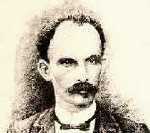 On Liberty
On Liberty
Liberty is the right of every man to be honest, to think and to speak without hypocrisy....A man who obeys a bad government is not an honest man.
Like bones to the human body, the axle to the wheel, the wing to the bird, and the air to the wing, so is liberty the essence of life. Whatever is done without it is imperfect.
Man loves liberty, even if he does not know that he loves it. He is driven by it and flees from where it does not exist.
Perhaps the enemies of liberty are such only because they judge it by its loud voice. If they knew its charms, the dignity that accompanies it, how much a free man feels like a king, the perpetual inner light that is produced by decorous self-awareness and realization, perhaps there would be no greater friends of freedom than those who are its worst enemies.
Freedoms, like privileges, prevail or are imperiled together. You cannot harm or strive to achieve one without harming or furthering all.
It is terrible to speak of you, Liberty, for one who lives without you. A wild beast does not bend its knee before its tamer with greater fury. One discovers the depths of hell, and from there looks up at freemen with their sun-like arrogance. One bites the air, like a hyena biting the bars of its cage. One's spirit writhes inside the body, like a man who has been poisoned. The wretch who lives without freedom feels like dressing in the mud from the streets Those who have you, o Liberty, do not know. you. Those who do not have you should not speak of you, but win you.
We are free, but not to be evil, not to be indifferent to human suffering, not to profit from the people, from the work created and sustained through their spirit of political association, while refusing to contribute to the political state that we profit from. We must say no once more. Man is not free to watch impassively the enslavement and dishonor of men, nor their struggles for liberty and honor.
 On Government and Politics
On Government and Politics
Socialist ideology, like so many others, has two main dangers. One stems from confused and incomplete readings of foreign texts, and the other from the arrogance and hidden rage of those who, in order to climb up in the world, pretend to be frantic defenders of the helpless so as to have shoulders on which to stand.
He who receives money in trust to administer for the benefit of its owner, and uses it either for his own interest or against the wishes of its rightful owner, is a thief. The vote is a trust more delicate than any other, for it involves not just the interests of the voter, but his life, honor and future as well. He who uses the office he owes to the voters wrongfully and against them is a thief.
After seeing it rise, quake, sleep, prostitute itself, make mistakes, be abused, sold and corrupted; after seeing the voters turn into animals, the voting booths besieged, the ballot boxes overturned, the results falsified, the highest offices stolen, one still must acknowledge, because it is true, that the vote is an awesome, invincible and solemn weapon; the vote is the most effective and merciful instrument that man has devised to manage his affairs.
Fortunately, there is a sane equilibrium in the character of nations, as there is in that of men. The force of passion is balanced by the force of interest. An insatiable appetite for glory leads to sacrifice and death, but innate instinct leads to self-preservation and life. A nation that neglects either of these forces perishes. They must be steered together, like a pair of carriage horses.
Peoples are made of hate and of love, and more of hate than love. But love, like the sun that it is, sets afire and melts everything. what greed and privilege to build up over whole centuries the indignation of a pious spirit, with its natural following of oppressed souls, will cast down with a single shove.
The merit and strength of a people are measured by their enthusiasm for freedom when the only rewards from it are anguish and martyrdom, the blood and ashes of exile, the sorrow of a house driven by the waves, and the shame of a useless life that lacks the foundation and peace of mind needed to do one's share of the common task.
 On Morality and Human Behavior
On Morality and Human Behavior
We light the oven so that everyone may bake bread in it. If I survive, I will spend my whole life at the oven door seeing that no one is denied bread and, so as to give a lesson of charity, especially those who did not bring flour.
It is necessary to make virtue fashionable.
One just principle from the depths of a cave is more powerful than an army.
Happiness exists on earth, and it is won through prudent exercise of reason, knowledge of the harmony of the universe, and constant practice of generosity. He who seeks it elsewhere will not find it for, having drunk from all the glasses of life, he will find satisfaction only in those.
Just as he who gives his life to serve a great idea is admirable, he who avails himself of a great idea to serve his personal hopes of glory and power is abominable, even if he too risks his life. To give one's life is a right only when one gives it unselfishly.
Talent is a gift that brings with it an obligation to serve the world, and not ourselves, for it is not of our making. To use for our exclusive benefit what is not ours is theft. Culture, which makes talent shine, is not completely ours either, nor can we place it solely at our disposal. Rather, it belongs mainly to our country, which gave it to us, and to humanity, from which we receive it as a birthright. A selfish man is a thief.
He who could have been a torch and stoops to being a pair of jaws is a deserter.
A child, from the time he can think, should think about all he sees, should suffer for all who cannot live with honesty, should work so that all men can be honest, and should be honest himself. A child who does not think about what happens around him and is content with living without wondering whether he lives honestly is like a man who lives from a scoundrel's work and is on the road to being a scoundrel.
Every human being has within him an ideal man, just as every piece of marble contains in a rough state a statue as beautiful as the one that Praxiteles the Greek made of the god Apollo.
It is the duty of man to raise up man. One is guilty of all abjection that one does not help to relieve. Only those who spread treachery, fire, and death out of hatred for the prosperity of others are undeserving of pity.
There are men who live contented through they live without decorum. Others suffer as if in agony when they see around them people living without decorum. There must be a certain amount of decorum in the world, just as there must be a certain amount of light. When there are many men without decorum, there are always others who themselves possess the decorum of many men. These are the ones who rebel with terrible strength against those who rob nations of their liberty, which is to rob men of their decorum. Embodied in those men are thousands of men, a whole people, human dignity.
Through a marvelous law of natural compensation, he who gives of himself grows, and he who turns inward and lives from small pleasures, is afraid to share them with others, and only thinks avariciously of cultivating his appetites loses his humanity and becomes loneliness itself. He carries in his breast all the dreariness of winter. He becomes in fact and appearance an insect.
Man is not an image engraved on a silver dollar, with covetous eyes, licking lips and a diamond pin on a silver dickey. Man is a living duty, a depository of powers that he must not leave in a brute state. Man is a wing.
A genuine man goes to the roots. To be a radical is no more than that: to go to the roots. He who does not see things in their depth should not call himself a radical.
To busy oneself with what is futile when one can do something useful, to attend to what is simple when one has the mettle to attempt what is difficult, is to strip talent of its dignity. It is a sin not to do what one is capable of doing.
Men of action, above all those whose actions are guided by love, live forever. Other famous men, those of much talk and few deeds, soon evaporate. Action is the dignity of greatness.
There is happiness in duty, although it may not seem so. To fulfill one's duty elevates the soul to a state of constant sweetness. Love is the bond between men, the way to teach and the center of the world.
In truth, men speak too much of danger. Let others be terrified by the natural and healthy risks of life! We shall not be frightened! Poison sumac grows in a hard-working man's field, the serpent hisses from its hidden den, and the owl's eye shines in the belfry, but the sun goes on lighting the sky, and truth continues marching across the earth unscathed.
 On Miscellaneous Subjects
On Miscellaneous Subjects
Like stones rolling down hills, fair ideas reach their objectives despite all obstacles and barriers. It may be possible to speed or hinder them, but impossible to stop them.
The struggles waged by nations are weak only when they lack support in the hearts of their women. But when women are moved and lend help, when women, who are by nature calm and controlled, give encouragement and applause, when virtuous and knowledgeable women grace the endeavor with their sweet love, then it is invincible.
Source:
´MARTI Thoughts/Pensamientos´ by Carlos Ripoll, Union de Cubanos en el Exilio, P O Box 2721, New York, N Y 10163
Eliseo Torres & Sons - Las Americas Publishing Co., New York
Library of Congress Catalog Card Number: 85-080986
International Standard Book Number: 0-88303-885-4
Lillian Martinez
PO Box 293
Round Rock Texas USA 78680-0293
512 246-2597 - Voice
512 246-1478 - Fax
Copyright© 1997- 2003
The XLData Net
All rights reserved
Created -
January 24, 1997
Revised -
December 1, 2003
This web server is created by, maintained by, and hosted by Clark Simmons with personal resources.
|
|

Español

The XLData Net
ISP and Web Server

¡Cuba! -- Un Sitio Para Liborio
The Law - Frederic Bastiat
Martí Books

Our Business Affiliates

Email Webmaster
|



